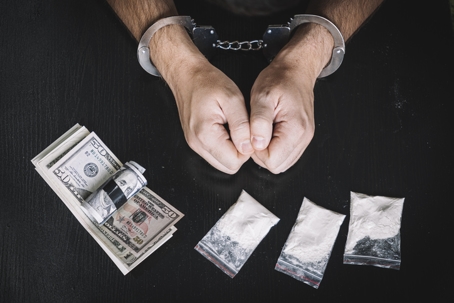Facing drug possession charges in Texas can feel overwhelming, but understanding the legal process can make a huge difference. From knowing the classifications of substances to exploring potential defenses, every step matters. Equip yourself with the knowledge to protect your rights and confidently move forward.
Understanding Drug Possession Laws in Texas
Classification of Controlled Substances
Texas organizes controlled substances into specific penalty groups under the Texas Controlled Substances Act. These groups reflect each substance's abuse potential and medical use, influencing how charges are handled. Penalty Group 1 includes drugs like heroin and cocaine, which have harsher penalties due to their high abuse potential and no accepted medical use. Substances in Penalty Group 4, on the other hand, may have medical value and result in lighter penalties. Classification affects charges, sentencing, and how law enforcement handles cases, making it vital to know which group a substance falls into when facing legal challenges.
Types of Drug Possession Charges
Drug possession cases range from simple possession to charges involving intent to distribute or manufacture. Simple possession applies to individuals caught with drugs for personal use, whereas intent to distribute involves evidence suggesting plans to sell or distribute. Manufacturing, which entails producing illegal substances, carries the heaviest penalties. Additionally, possession of drug paraphernalia, like certain equipment or tools, can come with its own legal consequences. Each charge has specific implications, making it essential to understand the distinctions and their impact on potential outcomes.
Legal Process Following a Drug Possession Arrest
Arrest and Booking Procedures
A drug possession arrest in Texas starts with law enforcement informing the individual of their Miranda rights before proceeding to booking. Booking includes recording personal details, taking fingerprints, and photographing the individual. Afterward, bail is set based on the severity of the charges, criminal history, and flight risk, with some individuals released on their own recognizance. Understanding one's rights during arrest and navigating the bail process is crucial in taking control of the situation from the beginning.
Court Appearances and Hearings
After an arrest, court appearances begin with an arraignment where individuals hear their charges and enter a plea. Preliminary hearings follow to determine if enough evidence exists to proceed to trial, giving defendants opportunities to challenge evidence and potentially reduce or dismiss charges. Legal representation is critical at each stage, as attorneys can advocate effectively and protect your interests, impacting the overall direction of the case.
Potential Consequences and Penalties
Sentencing Guidelines and Penalties
Texas drug possession penalties vary based on factors like the type and amount of the drug, prior convictions, and case specifics. Minimal quantities may lead to misdemeanor charges, while larger amounts or substances classified as more dangerous could escalate to felony charges and harsher sentences. Repeat offenses and possession with intent to distribute result in stricter penalties, emphasizing the importance of understanding legal ramifications and securing experienced legal help.
Impact on Personal and Professional Life
A drug possession conviction can severely affect employment, education, and housing opportunities due to the stigma of a criminal record. These restraints make it challenging to rebuild after facing such charges. Exploring options like expungement or record sealing can reduce these obstacles and provide a path to stability in personal and professional life.
Defense Strategies and Legal Options
Common Defense Strategies
Defending against drug possession charges often involves challenging improper search and seizure procedures or disputing ownership of the substance. Violations of constitutional rights can render evidence inadmissible, which is a significant advantage in court. Plea bargaining for a reduced charge is another option, but careful legal guidance is required to ensure favorable terms. These strategies demonstrate the importance of diligent defense planning tailored to the unique circumstances of each case.
Seeking Legal Assistance
When facing drug possession charges, partnering with an attorney experienced in Texas drug laws is crucial. Legal representation ensures proper guidance, from evidence evaluation to plea negotiations. For San Antonio residents, The Law Office of Derek S. Ritchie, PLLC offers skilled advocacy and focuses on securing the best outcomes to help clients move toward a brighter future.
Rehabilitation and Moving Forward
Alternative Sentencing and Diversion Programs
For defendants seeking alternatives to traditional sentencing, options like drug courts offer opportunities to pursue rehabilitation and avoid harsher legal penalties. These programs prioritize recovery and personal accountability, with successful participation often leading to reduced charges or case dismissal. Incorporating treatment, education, and community service, these initiatives give individuals the tools to overcome their situations while addressing deeper issues of substance use.
Rebuilding After a Conviction
After a conviction, accessing resources like expungement processes and support groups can foster recovery and personal growth. Expungement enables individuals to limit access to their criminal records, opening doors to better employment and housing opportunities. Counseling services and structured support environments also play a pivotal role in helping individuals address and overcome the long-term impacts of a conviction.
San Antonio Drug Possession Attorney
If you or someone you know is facing drug possession charges in Texas, The Law Office of Derek S. Ritchie, PLLC is here to help. Our experienced team is committed to protecting your rights, navigating complex legal challenges, and working tirelessly to achieve the best possible outcome. Located in San Antonio, we provide compassionate and assertive representation to ensure you have the support you need during this difficult time. Contact us today at (210) 702-2203 to begin building your defense and taking the first step toward reclaiming your future.

